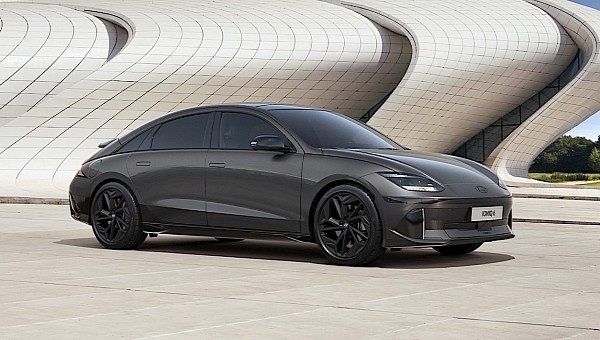The rapid adoption of electric vehicles has sent carmakers into a frantic race to secure the raw materials and technologies they need to make these things. And with a number of regions on the planet set to enforce ICE car sale bans soon, that race will only accelerate.
As one of the companies that have announced an increased dependence on EVs for the success of its business, Hyundai made another major step toward securing hardware by announcing a deal with SK On. Part of South Korean SK Group, the company will supply Hyundai with batteries for the electric cars it will be making and selling in the U.S. starting with 2025.
“Through the EV battery MOU, we will be able to further accelerate our efforts to secure EV leadership in the U.S. market,” said in a statement Executive Vice President Kim. “We expect the stable supply of EV batteries from SK On will also enable us to contribute to emissions reduction and meet climate goals in the U.S. market.”
“We expect the cooperation between SK On and Hyundai Motor Group to create a big synergy,” SK On Chief Administrative Officer Choi Young-chan said. “Both sides can hold a solid position in the process of electrification in the North American auto market.”
At the time of writing, neither of the two companies went into the specifics of what this memorandum of understanding (MOU) they signed means, but promised further details would be announced in due time.
To be fair, the deal is not only meant to bolster Hyundai’s EV presence in the U.S., but it’ll also allow it to comply with the Inflation Reduction Act. This bill calls for 40 percent of critical minerals’ value used in battery production to be sourced from the U.S. or a free-trade partner. In doing so, carmakers receive EV tax credits of up to $7,500 per vehicle.
“Through the EV battery MOU, we will be able to further accelerate our efforts to secure EV leadership in the U.S. market,” said in a statement Executive Vice President Kim. “We expect the stable supply of EV batteries from SK On will also enable us to contribute to emissions reduction and meet climate goals in the U.S. market.”
“We expect the cooperation between SK On and Hyundai Motor Group to create a big synergy,” SK On Chief Administrative Officer Choi Young-chan said. “Both sides can hold a solid position in the process of electrification in the North American auto market.”
At the time of writing, neither of the two companies went into the specifics of what this memorandum of understanding (MOU) they signed means, but promised further details would be announced in due time.
To be fair, the deal is not only meant to bolster Hyundai’s EV presence in the U.S., but it’ll also allow it to comply with the Inflation Reduction Act. This bill calls for 40 percent of critical minerals’ value used in battery production to be sourced from the U.S. or a free-trade partner. In doing so, carmakers receive EV tax credits of up to $7,500 per vehicle.









